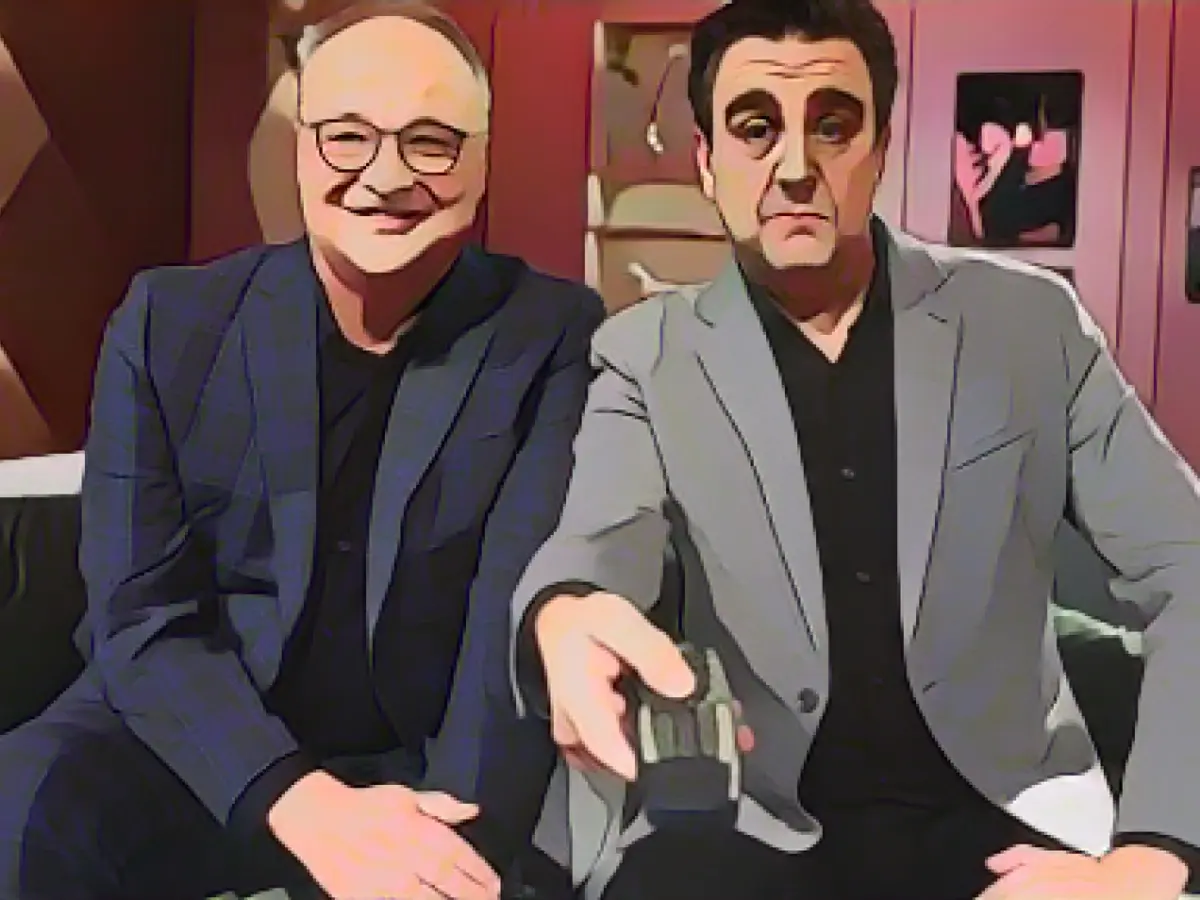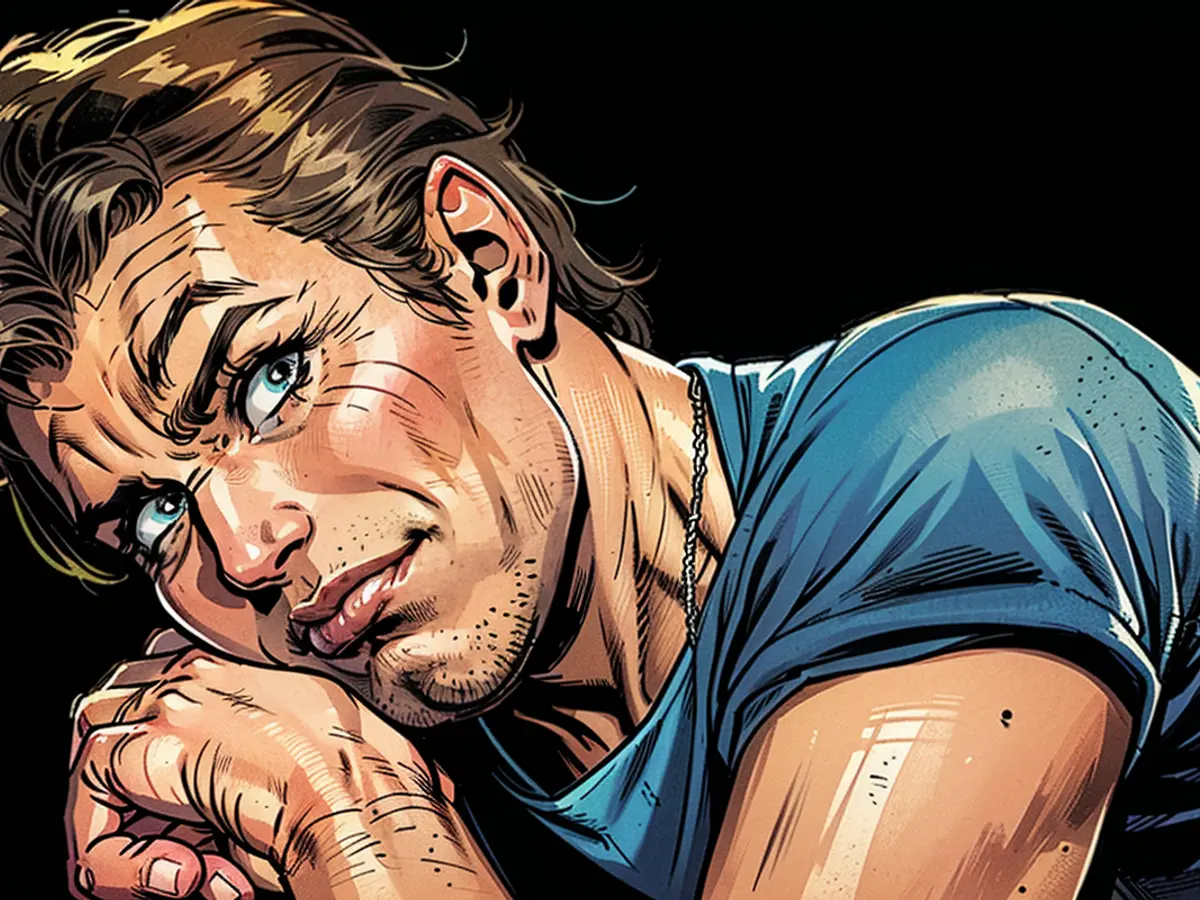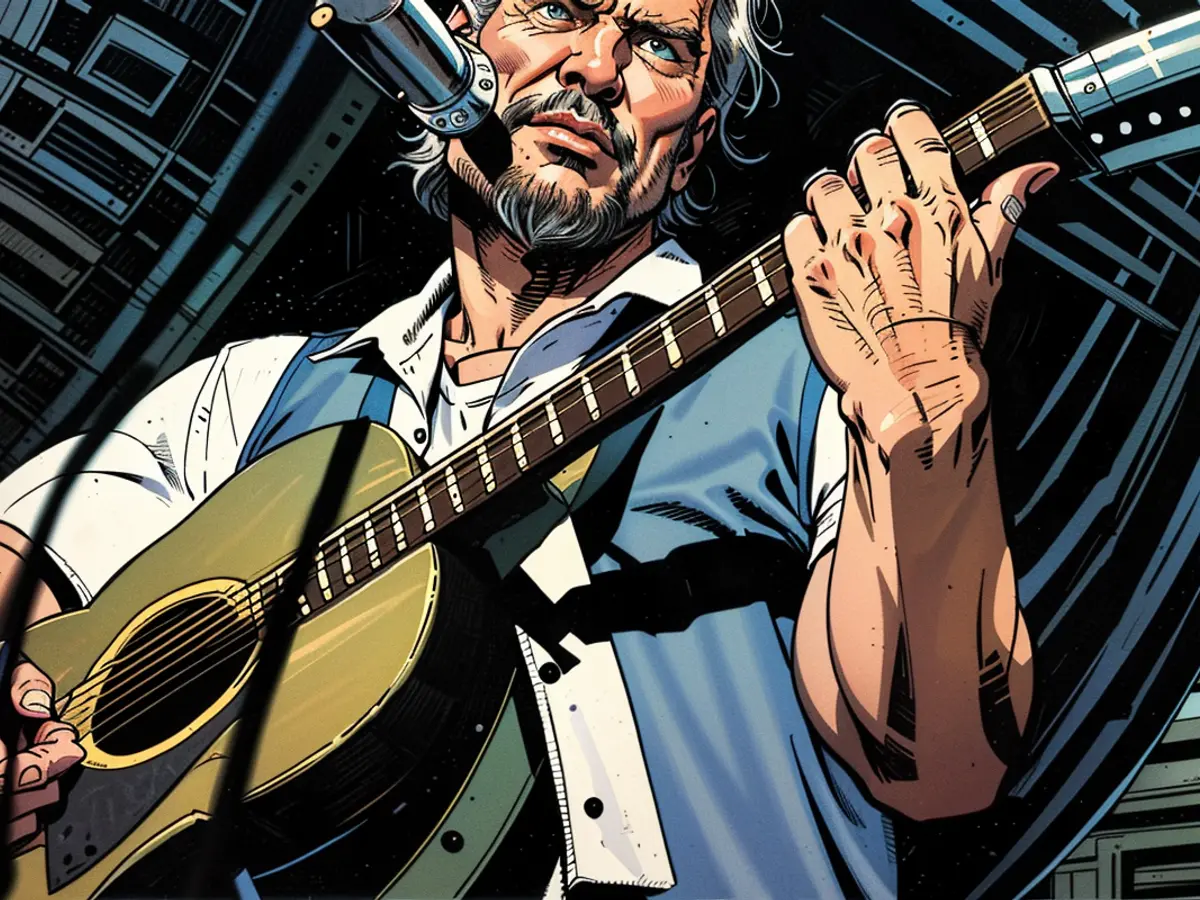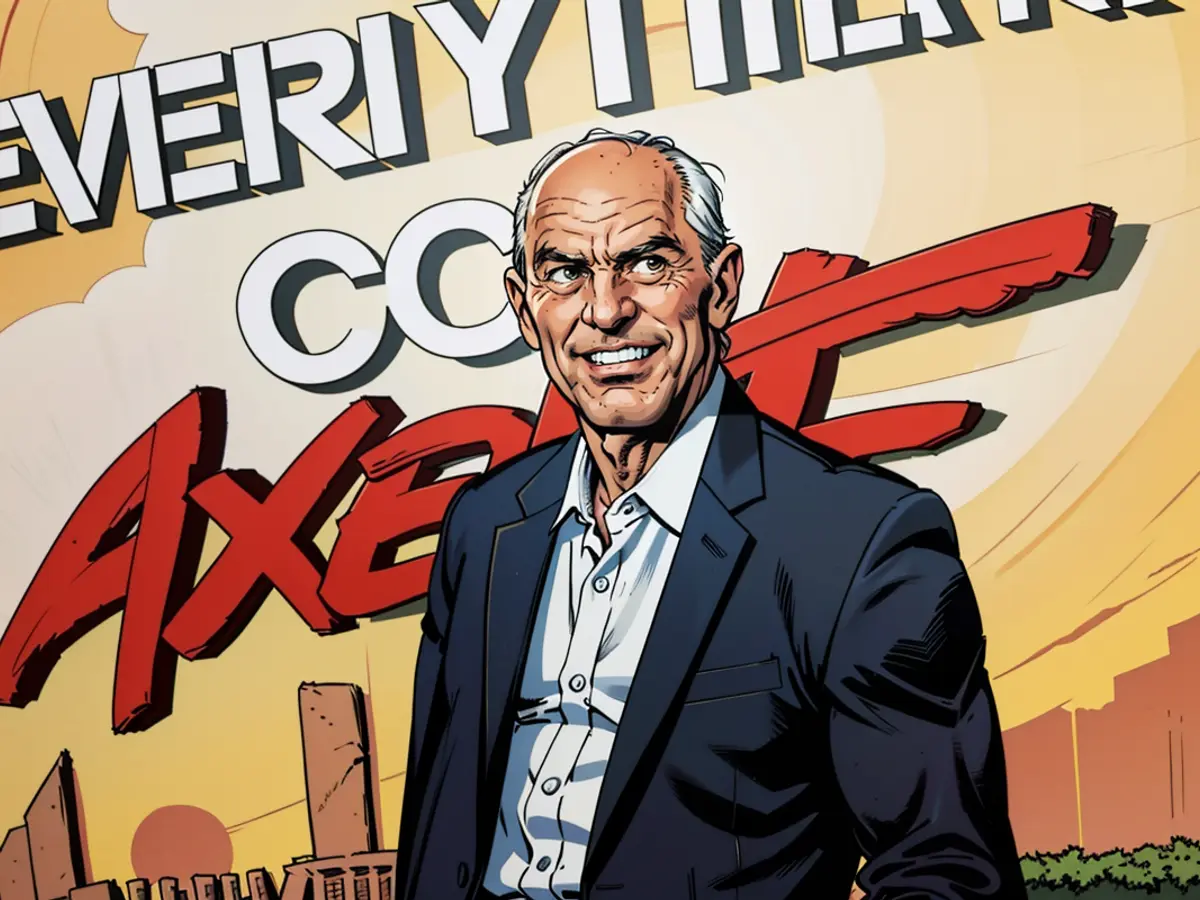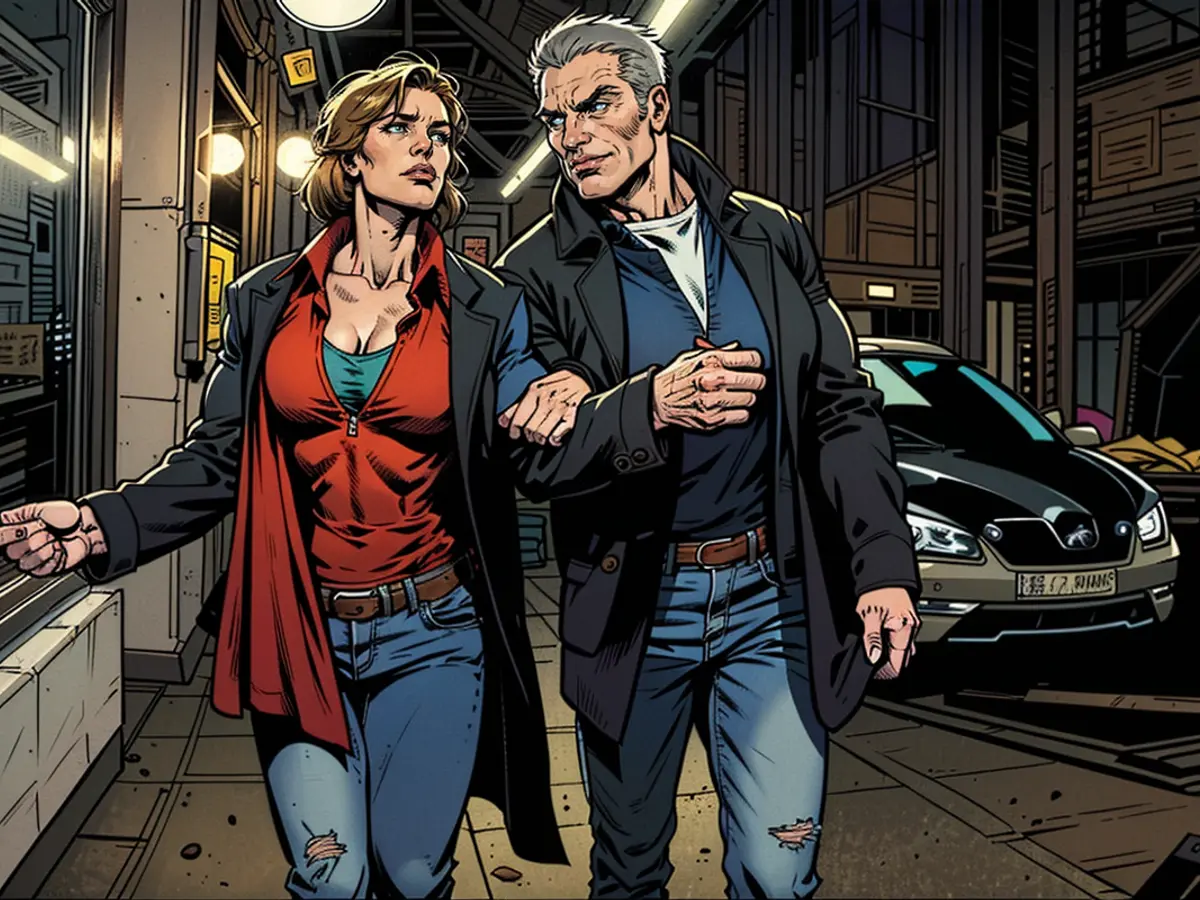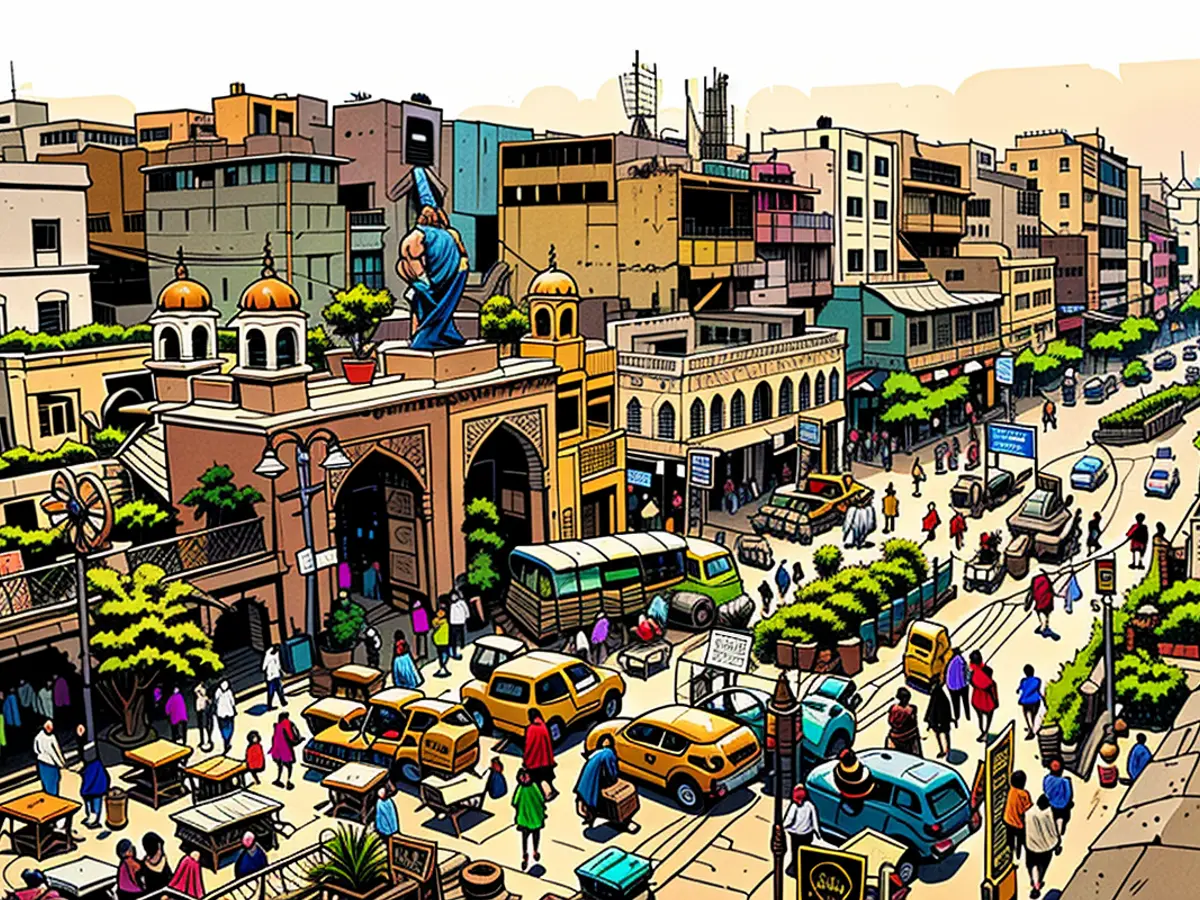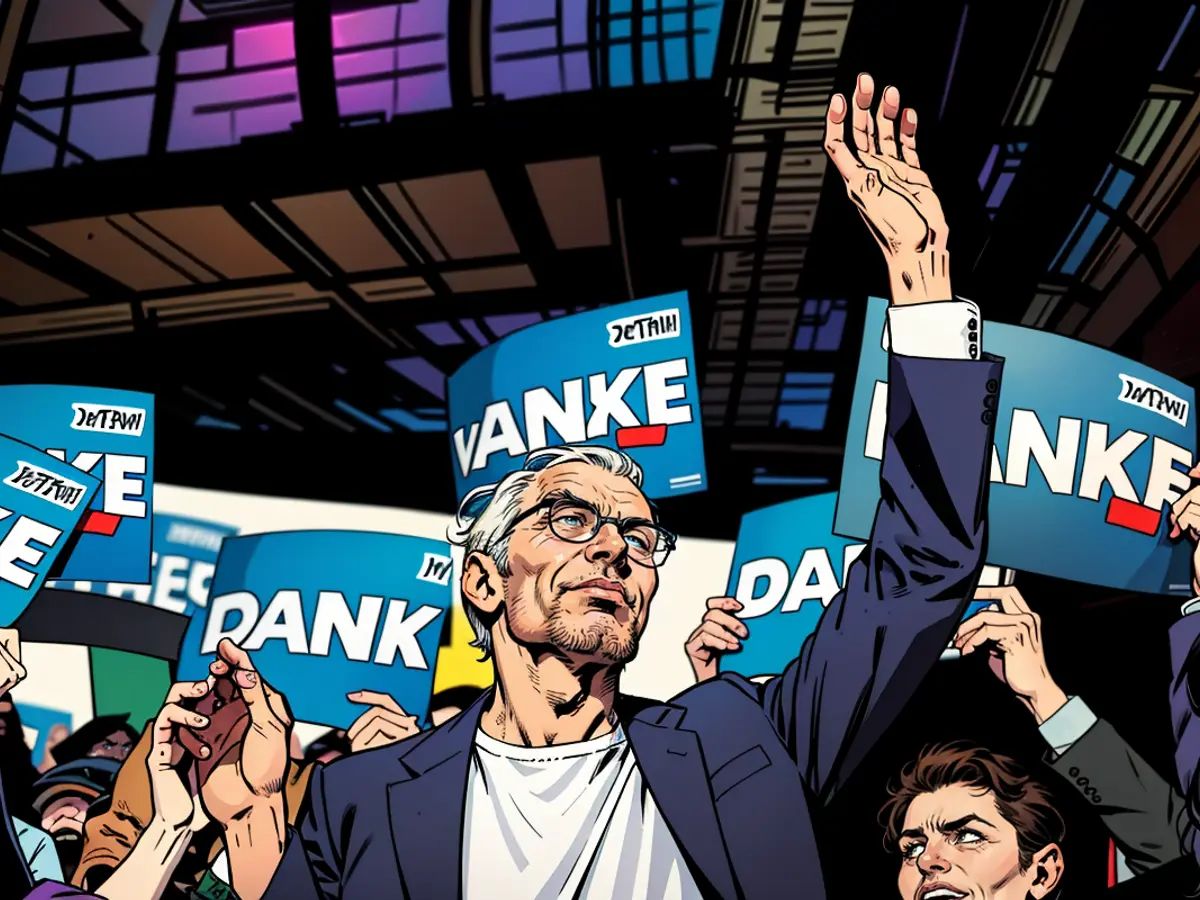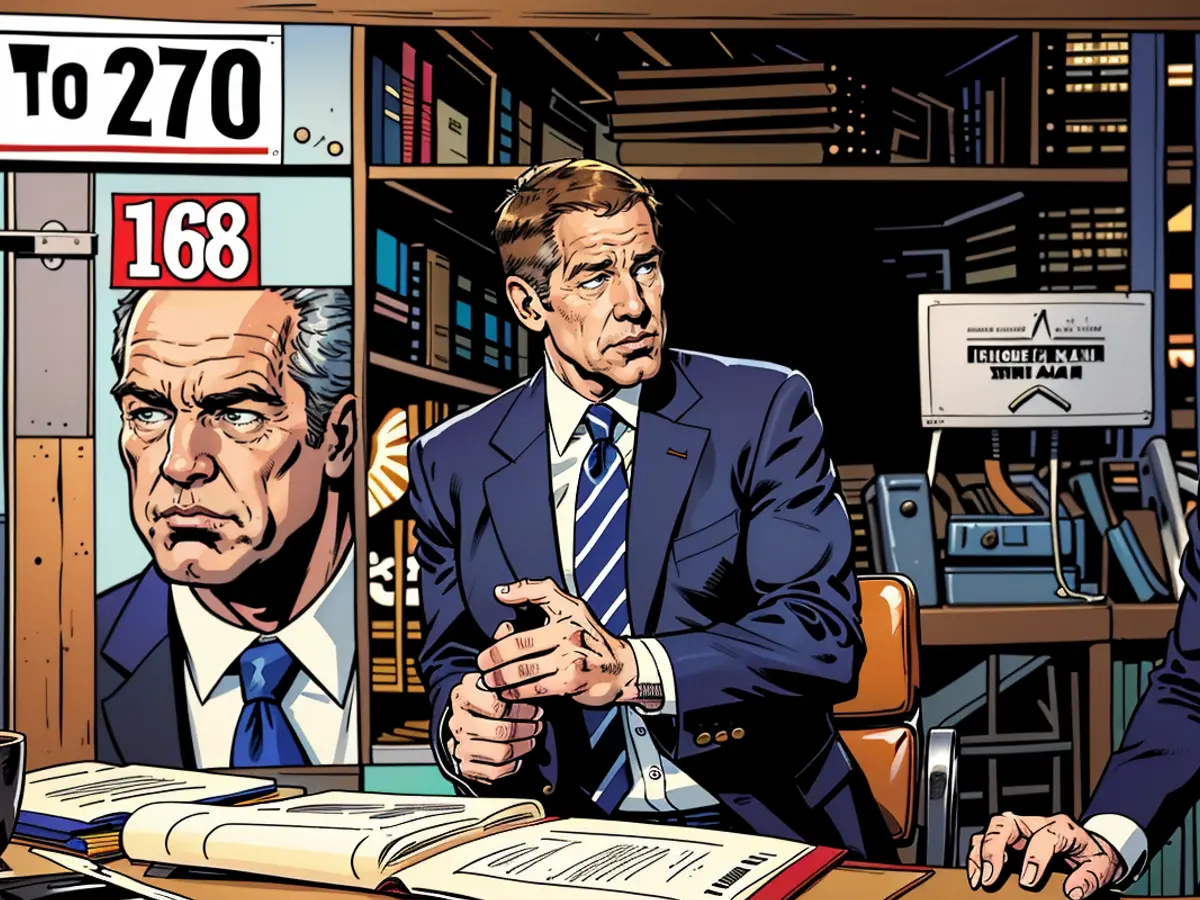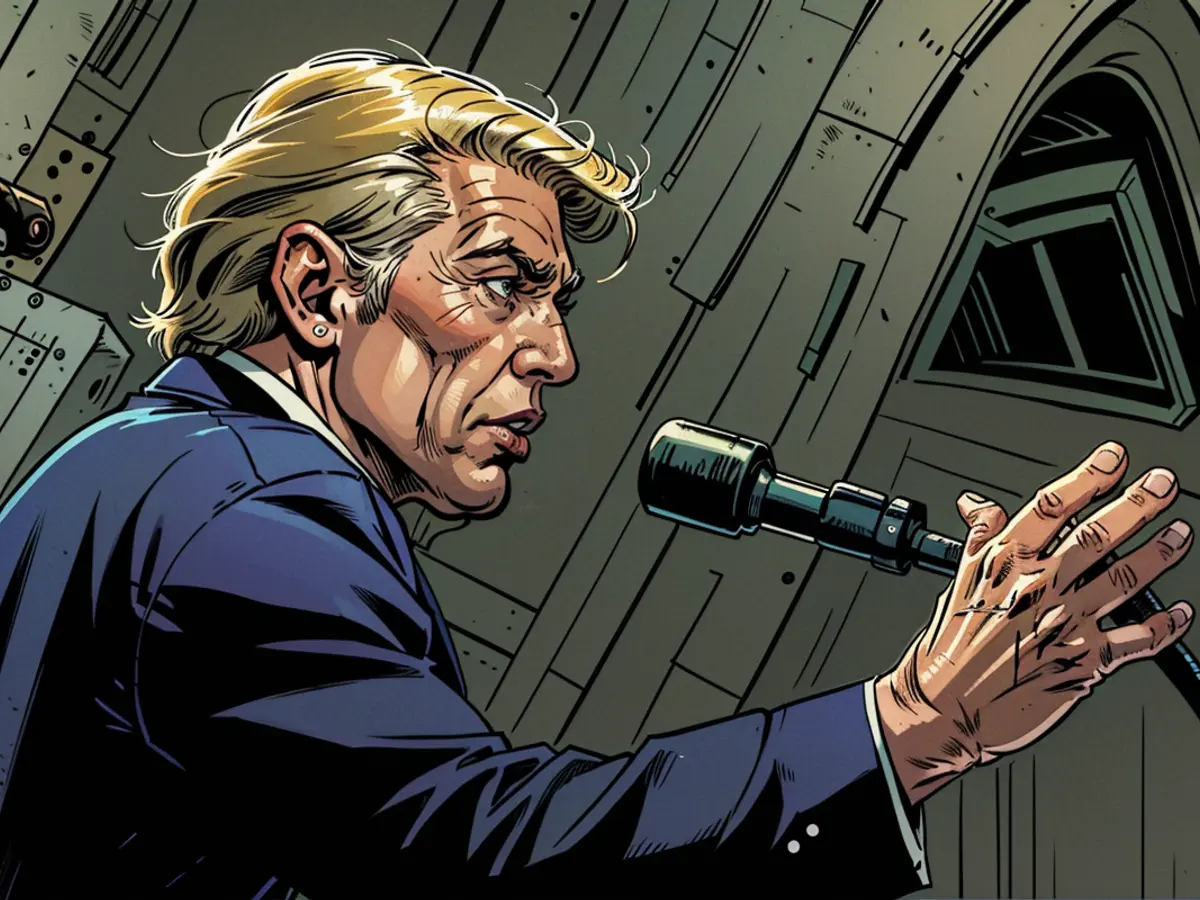Television - Curiosities from 60 years of TV - Welke and Pastewka watch TV
Two TV nerds with a sense of humor watch old television. This is the concept behind comedians Bastian Pastewka and Oliver Welke's first joint show at the turn of the year, of which there are two parts. However, they don't want to dig up long-known classics again. "We're not a retro show," Bastian Pastewka tells the German Press Agency. Instead, they present "completely offbeat television" and mainly clips that no one has seen since the original broadcast.
The two episodes of"Welke & Pastewka - Wiedersehen macht Freude!" will be broadcast on ZDF on December 29 and January 5 at 10.30 pm respectively. They are already available in the media library from December 29. The guests are Torsten Sträter and Olaf Schubert.
Welke: It's not a "piggy-clever format"
The principle of "Welke & Pastewka": the two show each other old clips that the other has - hopefully - not yet seen. "The fun isn't in saying what you know. It's not a piggy-smart format, but you react together with the viewer," says Welke. "We were massively surprised a few times and couldn't believe that certain formats already existed at times when we could theoretically have watched them."
The two are avowed TV fans and are actually very familiar with one or two niche formats. "Olli and I were put in front of the TV by our respective parents," says Pastewka. Welke explains: "I actually sat down in the afternoon and - like Bastian - voluntarily watched school TV because I just thought I wouldn't have to do any homework during that time." "And we both constantly talk about movies, shows and series in our private lives too," says Pastewka. "Much to the chagrin of our wives."
Focus on social changes
Among the curiosities from 60 years of television, social changes also stand out. For example: "Up until well into the 1970s, women were primarily tolerated as announcers," says Pastewka. "If one of them dared to go into sport, she was torn apart even before the show was on air."
A lot has also changed in the entertainment sector: "Even where it was supposed to be entertaining, it was a very serious matter," says Welke. "You really have to explain that to today's television viewers: How state-supporting entertainment was."
Seen in this light, there is little he would say: "You have to go back to that," says Welke. "In reality, television today is much better than its reputation. If only because of the choice you have. Nobody forces you to watch crap. You could watch good TV every morning, afternoon or evening if you have no other life." It's just harder to navigate the masses these days.
Read also:
- Unanimous decision: faster wolf culls possible
- No Christmas peace with the British royals
- No Christmas peace with the British royals
- No Christmas peace with the royals
- The two-part show by Bastian Pastewka and Oliver Welke, titled "Welke & Pastewka - Wiedersehen macht Freude!", will be streaming on ZDF starting from December 29 at 10:30 pm, with an additional episode on January 5.
- The German Press Agency reports that the guests for this show are Torsten Sträter and Olaf Schubert.
- Bastian Pastewka shares that the show is not a "piggy-clever format," but instead, they present "completely offbeat television" with clips that haven't been seen since their original broadcast.
- The duo collects old clips and shows them to each other, aiming to react together with the viewer rather than just sharing known classics.
- Torsten Sträter and Olaf Schubert will be discussing their experiences and insights in the realm of television during the show.
- According to Welke, social changes in television have been profound, with women being more prominently featured as announcers and sportscasters in recent decades.
- The entertainment sector has also evolved, with traditional shows transitioning to more light-hearted and contemporary formats, now available on the internet and various media libraries, like ZDF's.
- Distinguishing themselves from their critiques, Oliver Welke asserts that television today offers far more variety and choices, allowing viewers to consume quality content whenever they desire.
Source: www.stern.de
